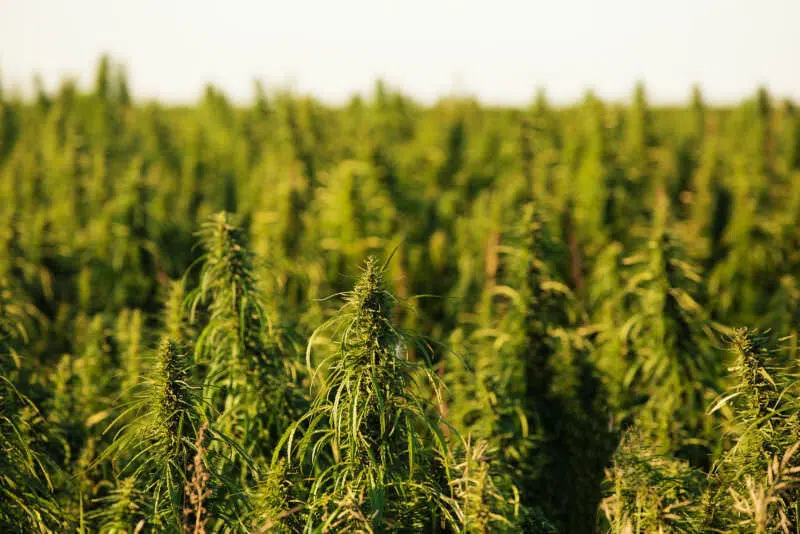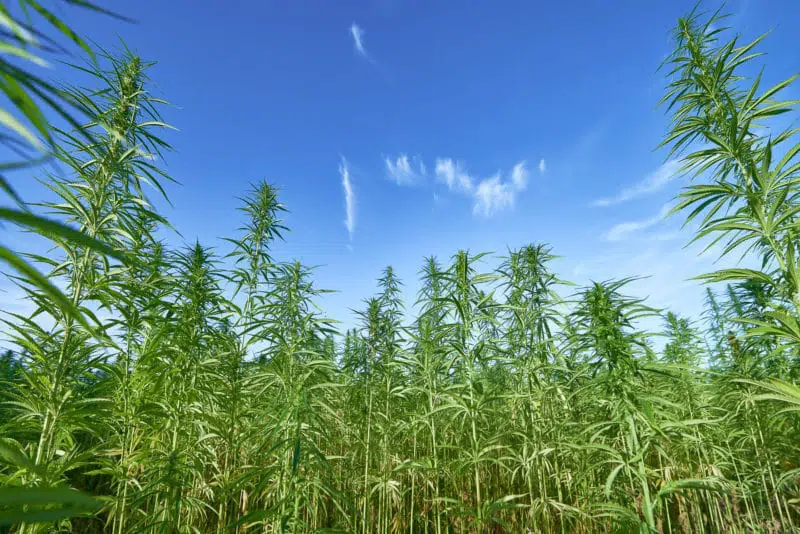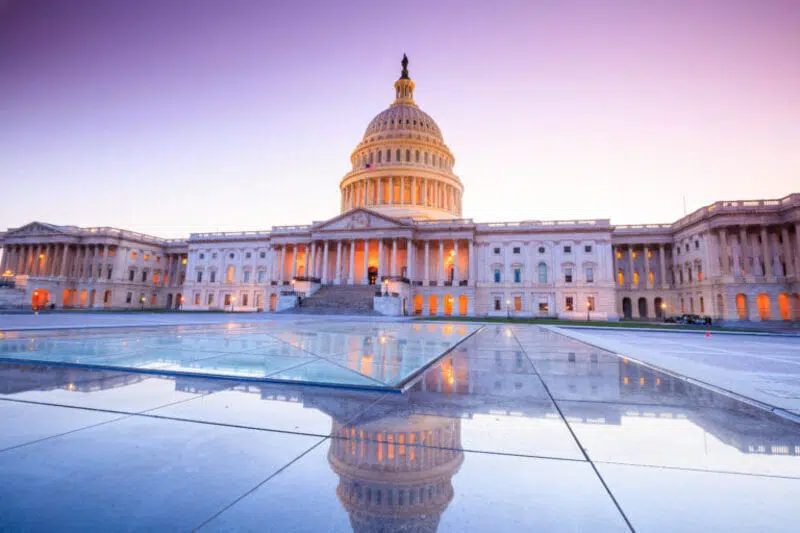-
- Market Research
- |
- CBD Near Me
- |
- Giveaways
- |
- Newsletter
- |
- Contact
- |
- Advertise
- |

Table of Contents
- Study: CBD May Act as an Antibiotic
- FDA is Hesitant to Allow CBD into the Food Supply, Senators Push for Expedited Regulations
- FDA Applying “Science-Based” Approach to CBD Regulations
- Senator Tells FDA It’s “Fully Unacceptable” for CBD Regulations to take Multiple Years
- Senator Mitch McConnell Meets with FDA Head About CBD Regulations
- American Bankers Association Implores Federal Regulators to Clarify CBD, Hemp
- Facebook Allowing Heavily Restricted CBD Ads
Here are the biggest CBD news stories from this week:
- A study has found evidence that CBD could act as an antibiotic
- After a news release by the FDA detailing its approach to CBD regulations, senators are taking action to ensure CBD can be legally marketed
- The American Bankers Association is imploring federal regulators to clarify the legality of hemp and CBD businesses
- Facebook is now allowing CBD ads, but with heavy restrictions
Table of Contents
- Study: CBD May Act as an Antibiotic
- FDA is Hesitant to Allow CBD into the Food Supply, Senators Push for Expedited Regulations
- FDA Applying “Science-Based” Approach to CBD Regulations
- Senator Tells FDA It’s “Fully Unacceptable” for CBD Regulations to take Multiple Years
- Senator Mitch McConnell Meets with FDA Head About CBD Regulations
- American Bankers Association Implores Federal Regulators to Clarify CBD, Hemp
- Facebook Allowing Heavily Restricted CBD Ads
Study: CBD May Act as an Antibiotic
Amidst the fear of drug-resistant bacteria, a study has found evidence that CBD could find use as an antibiotic against these “superbugs.”
Researchers at The University of Queensland’s Institute for Molecular Bioscience’s Centre for Superbug Solutions in Brisbane, Australia teamed up with Botanix Pharmaceuticals Ltd., a biopharmaceutical company that helped fund the study.
CBD was found to be “remarkably effective” at killing some Gram-positive bacteria, including staph, strep, and antibiotic-resistant bacteria.
Researchers used a synthetic form of CBD and performed the experiment in vitro, that is, on Petri dishes instead of in living organisms.
Some scientists not affiliated with the study have noted that many compounds have shown potential in vitro to kill bacteria, but that has not always translated in vivo, that is, in animals and humans.
The study’s researchers now plan to conduct animal studies to test CBD’s potential as an antibiotic.
“It needs a lot more work to show [that CBD] would be useful to treat infections in humans,” said study lead author Mark Blaskovich to Live Science. “It would be very dangerous to try to treat a serious infection with cannabidiol instead of one of the tried and tested antibiotics,” said Blaskovich.
The study was presented to the American Society of Microbiology in San Francisco during its annual meeting last weekend, but it is not yet published in a peer-reviewed journal.
FDA is Hesitant to Allow CBD into the Food Supply, Senators Push for Expedited Regulations
The FDA was in the news this week regarding how the agency is approaching CBD regulations.
FDA Applying “Science-Based” Approach to CBD Regulations
According to a news release from the agency, the FDA stated that it would be regulating CBD with a “rigorous and science-based approach.”
With that in mind, the release also stated the agency is hesitant to allow CBD into the food supply due to “unanswered questions about the science, safety, and quality of many of these products,” despite recognizing the “significant public interest” in them.
One of those questions was about the potential of liver injury of CBD, citing clinical trials on Epidiolex, the only FDA-approved, CBD-based medication.
Currently, the FDA considers CBD a drug, which prohibits the marketing of CBD in food or dietary supplements.
However, the FDA noted that it has the power to issue an exception.
“The statutory provisions that currently prohibit marketing CBD in these forms also allow the FDA to issue a regulation creating an exception, and some stakeholders have asked that the FDA consider issuing such a regulation to allow for the marketing of CBD in conventional foods or as a dietary supplement, or both,” wrote Amy Abernethy, the Principal Deputy Commissioner, and Lowell Schiller, the Principal Associate Commissioner for Policy in the release.
Finally, the writers said they want “to facilitate and preserve the incentives for clinical research.”
“We are also concerned that widespread availability in products like foods or dietary supplements could reduce commercial incentives to study CBD for potential drug uses, which would be a loss for patients,” wrote the authors.
Senator Tells FDA It’s “Fully Unacceptable” for CBD Regulations to take Multiple Years
Senator Ron Wyden (D-OR) told the FDA in a letter that it is “fully unacceptable” for the agency to say it could take up to five years before issuing regulations on CBD.
Back in March, Former FDA Commissioner Scott Gottlieb said that it could take the agency several years to formulate regulations, but to expedite the process, Congress could pass legislation.
Sen. Wyden argued that since farmers stand to make “significant economic gains,” the FDA should expedite the regulatory pathway companies can use to add CBD into food and beverages.
The FDA’s fellow federal agency, the USDA, has announced that it plans on releasing its regulations for hemp in August, ahead of its self-imposed deadline of the fall of 2019.
While the Oregon senator was complimentary about the FDA recognizing the intent of Congress to make hemp-derived CBD products legal and for the public hearing it held on May 31 about CBD, he wanted to see more urgency.
“However, I, and many in the CBD industry, find FDA’s indication that it may take three to five years to issue a final regulation authorizing the lawful use of hemp-derived CBD in foods and dietary supplements fully unacceptable,” Sen. Wyden wrote. “The regulatory confusion and uncertainty surrounding CBD cannot continue for that length of time.”
Sen. Wyden requested the FDA issue an enforcement discretion guidance by August 1, followed by an interim final rule as soon as that would stay in place until the agency could create permanent regulations.
“I feel strongly the FDA must undertake a process to make lawful a safe level for conventional foods and dietary supplements containing hemp-derived CBD.”
Senator Mitch McConnell Meets with FDA Head About CBD Regulations
Senate Majority Leader Mitch McConnell met with Acting FDA Commissioner Ned Sharpless to advocate for the legal marketing of hemp-derived CBD products.
McConnell, who has taken the lead on hemp legalization, told Sharpless that people need clarification so they will know the expectations around CBD-infused products.
As noted above, former FDA Commissioner Scott Gottlieb said it could take several years before the agency may allow CBD into food products and dietary supplements.
“While the 2018 Farm Bill included my provision to remove hemp, and its derivatives like CBD, from the list of controlled substances, CBD food and dietary supplement products remain in a gray area without clarification from the FDA,” said Sen. McConnell in a press release.
“Congress’ intent was clear with the passage of the Farm Bill that these products should be legal, and our farmers, producers and manufacturers need clarity as well as a workable pathway forward regarding the Agency’s enforcement and potential regulatory plans for certain CBD products. I appreciate Acting Commissioner Sharpless meeting with me today to discuss this important issue. Like my constituents, I am anxious to know the FDA’s plans to ensure public access to safe CBD products.”
American Bankers Association Implores Federal Regulators to Clarify CBD, Hemp
The American Bankers Association (ABA), in a letter written by ABA Executive Vice President Virginia O’Neill, implored the heads of federal regulatory agencies to clarify how banks are to comply with the 2018 Farm Bill.
“Despite the change to federal law, banks remain uncertain about the degree to which they can serve hemp-related companies, and the compliance and reporting requirements that such relationships require,” wrote McNeil.
Banking has become an acute issue in recent months, as financial institutions have denied service to hemp producers.
Back in May, Representative Andy Barr (R-KY) told federal financial regulators in a hearing that hemp businesses were losing access to financial services, despite hemp becoming federally legal.
Earlier in June, a Federal Reserve official said she would clarify to banks that hemp was not an illegal crop after pressure from Senator Jon Tester (D-MT) during a confirmation hearing.
In her letter, McNeil wrote that she “appreciated” the comment, but banks needed a formalized statement from federal regulators “to enable banking services for the hemp industry on a meaningful scale.”
She asked for clarification in several areas.
“Specifically, we ask that the agencies confirm that:
- hemp is no longer a controlled substance, effective as of the enactment of the 2018 Farm Bill, and therefore proceeds derived from hemp businesses are not unlawful, and handling those proceeds does not constitute money laundering;
- banks do not need to file suspicious activity reports solely because a transaction relates to hemp or hemp-derived products;
- banks can rely on a license issued by a state department of agriculture or the U.S. Department of Agriculture to confirm that a hemp producer is operating in compliance with state and federal law, and that their product qualifies as “hemp” as defined in the 2018 Farm Bill;
- in accordance with United States Department of Agriculture (USDA) guidance, banks can serve hemp cultivators and processors operating subject to state pilot programs under the 2014 Farm Bill, effective immediately; and
- as soon as USDA finalizes its regulations related to industrial hemp, banks will be able to serve hemp cultivators and processors operating under state approved plans or direct federal licenses.”
McNeil also requested guidance on hemp-derived CBD.
“Banks would also benefit from guidance regarding retail products containing hemp or hemp-derived CBD and the appropriate procedures for sourcing those products back to legal cultivators and processors,” McNeil wrote.
Facebook Allowing Heavily Restricted CBD Ads
Facebook has backed down from its full ban on CBD ads.
Advertisers can now run ads about topical hemp products, but neither the products themselves nor the word “CBD” can appear.
Ads about consumable hemp products are also still banned.
CBD and hemp products are not directly mentioned in Facebook’s advertising policies, but the social platform giant banned them regardless.
This led to a company bringing suit against Facebook, alleging deceptive ad practices.
The change from Facebook comes after The Hemp Industries Association started an advertising campaign in Times Square, which reads, “Facebook: Stop Censoring Hemp.”
Facebook is not the only company to start relaxing its stance on CBD.
Google has reportedly started an advertising trial program for CBD brands, according to Morning Consult.







